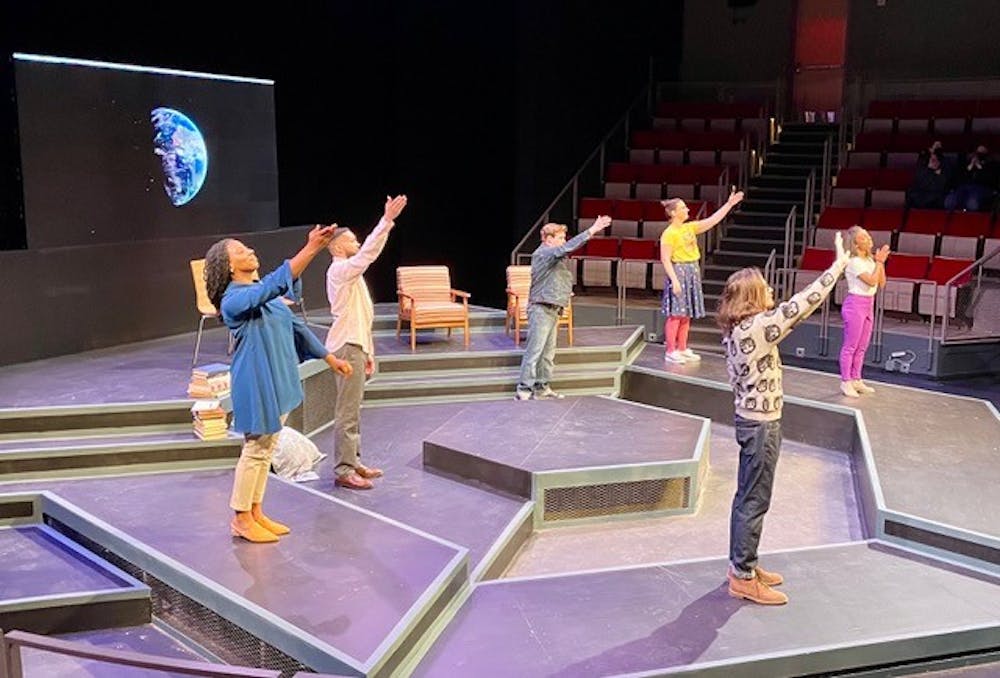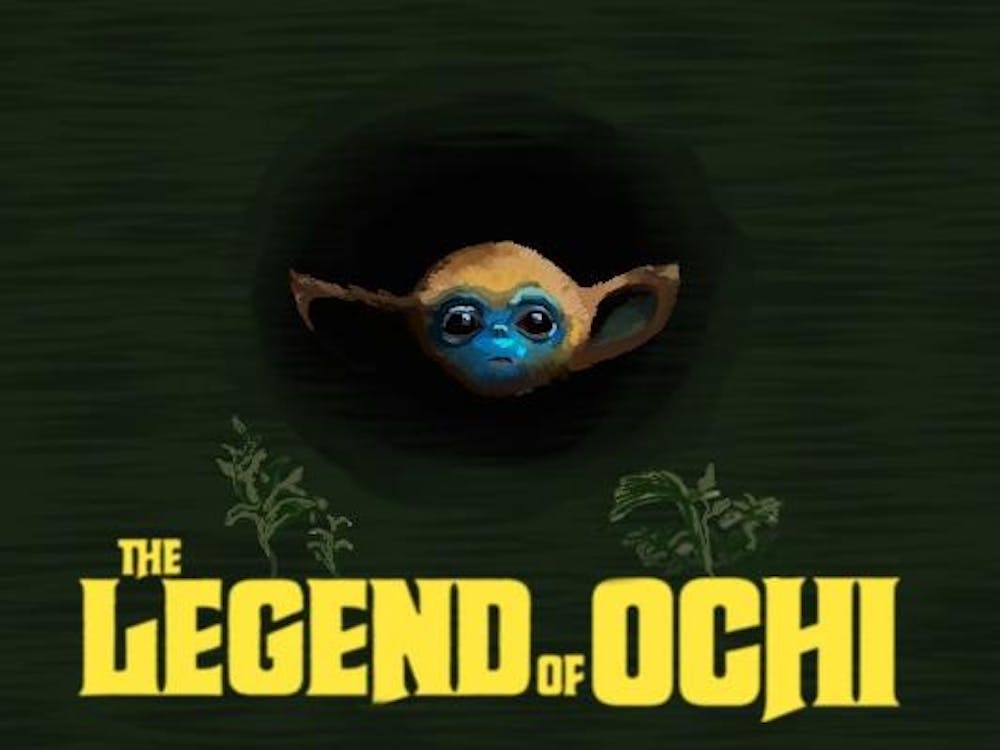The University’s Drama Department presented MJ Kaufman’s “How to Live on Earth” Feb. 24 through 26 at the Ruth Caplin Theater. Based in part on the now-defunct Mars One project, which aimed to explore Mars by 2025, “How to Live on Earth” centers on four people — all of them applicants for a mission to reach Mars.
Omar, played by second-year MFA student James Stringer, Jr., is a computer engineer who hates his job and wants to stop feeling so small, but his partner, Rick, played by second-year MFA student Brian Willis, can’t understand his desire to leave.
Aggie, played by graduate student Christine Jacobs, is a free spirit and a bit of an outcast, struggling to find a purpose, much to her successful father’s dismay.
Eleanor, played by third-year College student Cameron Chavers, is a 34-year-old librarian who wants to live and die for a greater cause, but a love interest enters the picture.
Bill, played by graduate student Jack Clifford, is an egotistical MD-PhD student recruited through Doctors Without Borders for the mission. Not hesitant to brag about his laundry list of accomplishments, he performs his daily stretching routine while setting reminders to call doctors at Hopkins.
Each of the protagonists have something pushing them towards Mars and something, or someone, pulling them back towards Earth.
The emotional gravity of the play comes from the kicker to the Mars mission — the trip is one-way with no possibility of return. What begins as the characters reckoning with Earthly relationships as they prepare to leave turns into a commentary on what living on Earth means when it is no longer a simple guarantee.
The play begins with the characters’ video applications for the mission. Instead of introducing the characters through scenes of their everyday lives, the audience sees each character’s sincerity and vulnerability in their carefully prepared descriptions of themselves and their suitability for the mission. As the characters stand on stage, their prerecorded application video plays on a large screen behind them. The steep incline of the rows in the theater makes for a fishbowl experience — the audience peers over the characters, urgently attempting to convince a selection committee to pick them.
Throughout the production, the extensive media and sound design exhibited the Drama Department’s technical skill through projected Facetime and Skype calls, artificial CNN footage and, later on, an isolation simulation exam accompanied by the sonic effects of hallowed breathing and a quickening heartbeat.
The play successfully makes use of technology to highlight the contemporaneity of the narrative and bring a sense of self-awareness to the implications of something as profoundly abnormal as leaving Earth forever. This technological impact is particularly evident each time the play zeroes in on the sub-consciousness of each of the four characters attempting to go to Mars.
Periodically, the character will stare blankly ahead as space sound effects take over and the screen flashes images of Earth, abstract lights and outer space. The other characters on stage are frozen as the protagonist zones out of the preceding conversation.
With fresh references — Eleanor’s favorite book is Zadie Smith’s “White Teeth” — and well-paced quippy jokes, the actors, particularly Chavers and Stringer, bring humor and depth to their performances. Although some conversations are too brief and the play makes liberal use of quick transitions, the play succeeds when it zeroes in on the relationships between the characters and their loved ones.
The play also avoids excessive pontification in its presentation of regular people. At one point, Omar explains feeling small on Earth to his partner Rick, who doesn’t understand Omar’s desire to leave their relationship behind.
“Stop getting all philosophical!” Rick shouts to Omar.
By the second half of the play, Bill has been selected for the mission and the other three protagonists have been rejected — they must accept their life on plain old Earth. Bill has left and much of the narrative turns towards his mother, played by Deandra McDonald, and her loss of her son. In an expected merging of stories given the four characters’ parallel narratives, Bill’s brother Don forms a relationship with Aggie, the free spirit who was rejected for the mission.
Stuck with the hand she’s been dealt, Aggie finds comfort and growth in connecting with Don, someone who never wished to leave but whose brother actually has left. The new couple decides to take an impromptu trip to the Grand Canyon, maybe the closest thing America has to offer to Mars.
While Aggie’s story satisfyingly connects with the story of Bill, through Don, the other two protagonists’ — Eleanor and Omar — stories remain isolated. With no intermission and running at around 90 minutes, the play begins to lag at the end. Though perhaps unreasonable to expect a resolution to a play about the uncertainty of future life, the disjointed storylines and rapid transitions fail to pose an explicit question or reflection of what is to come. Even so, “How to Live on Earth” presents strong performances and explores thought-provoking ways in which human relationships might survive or die in the ever-changing conditions we live with, on Earth and otherwise.







